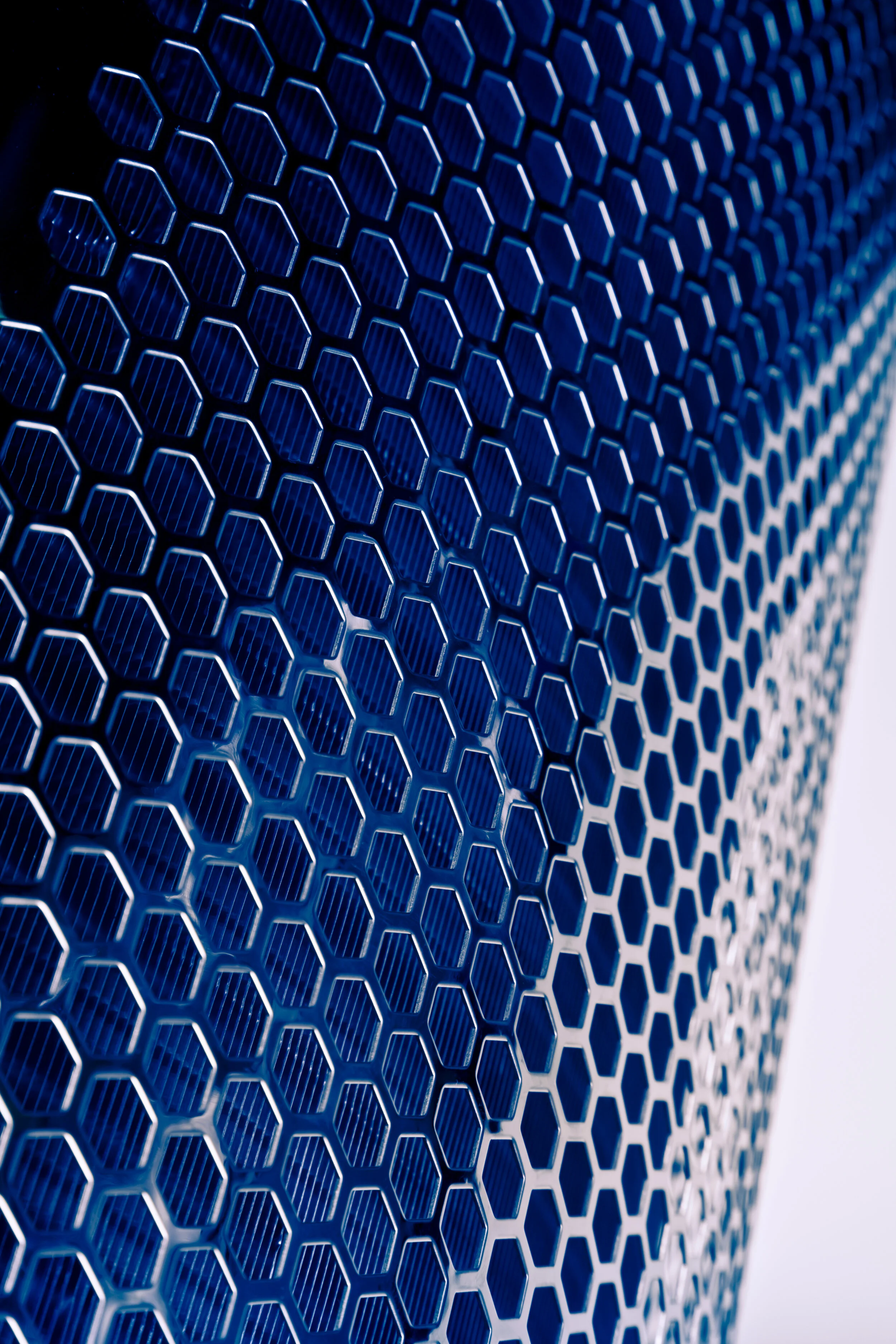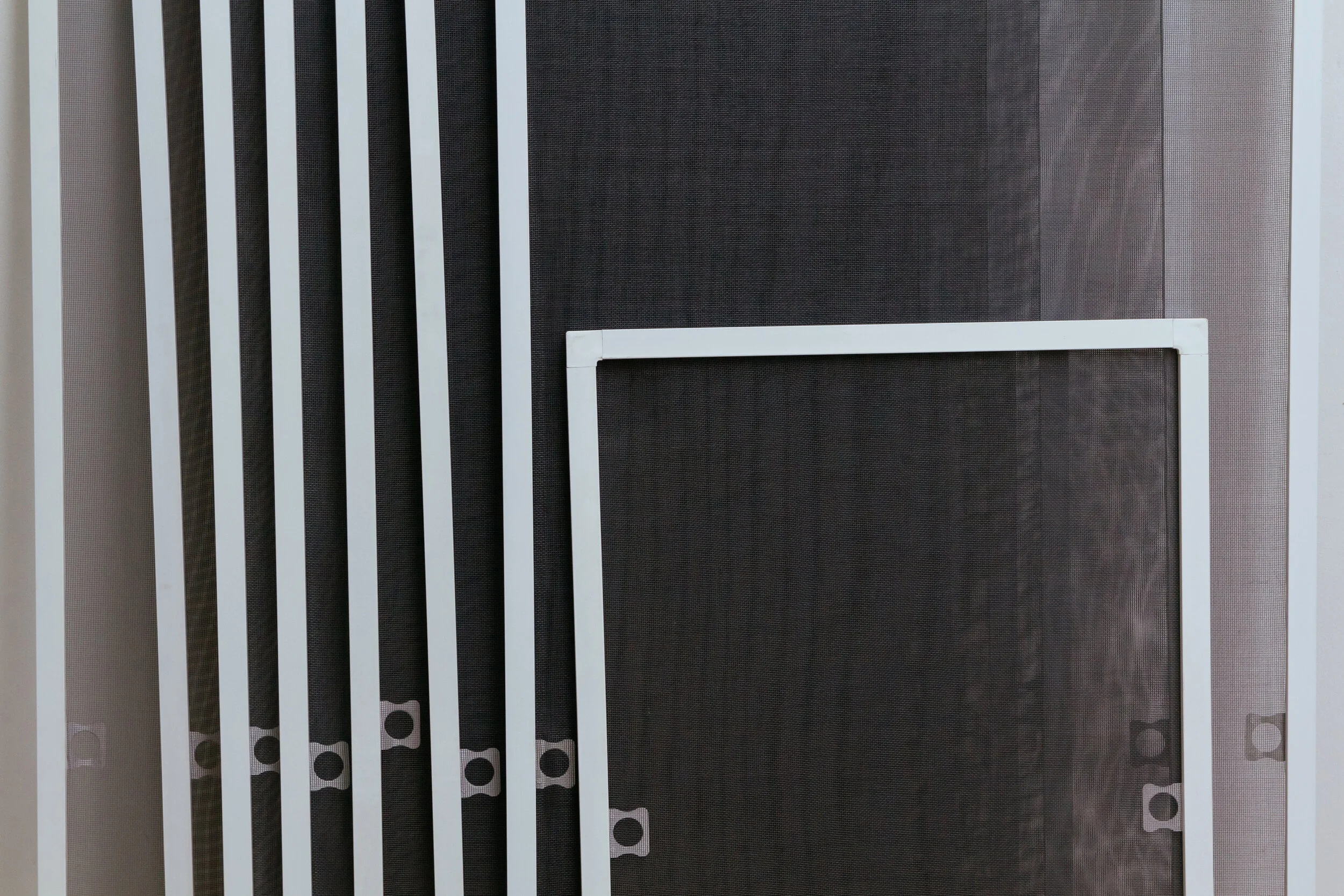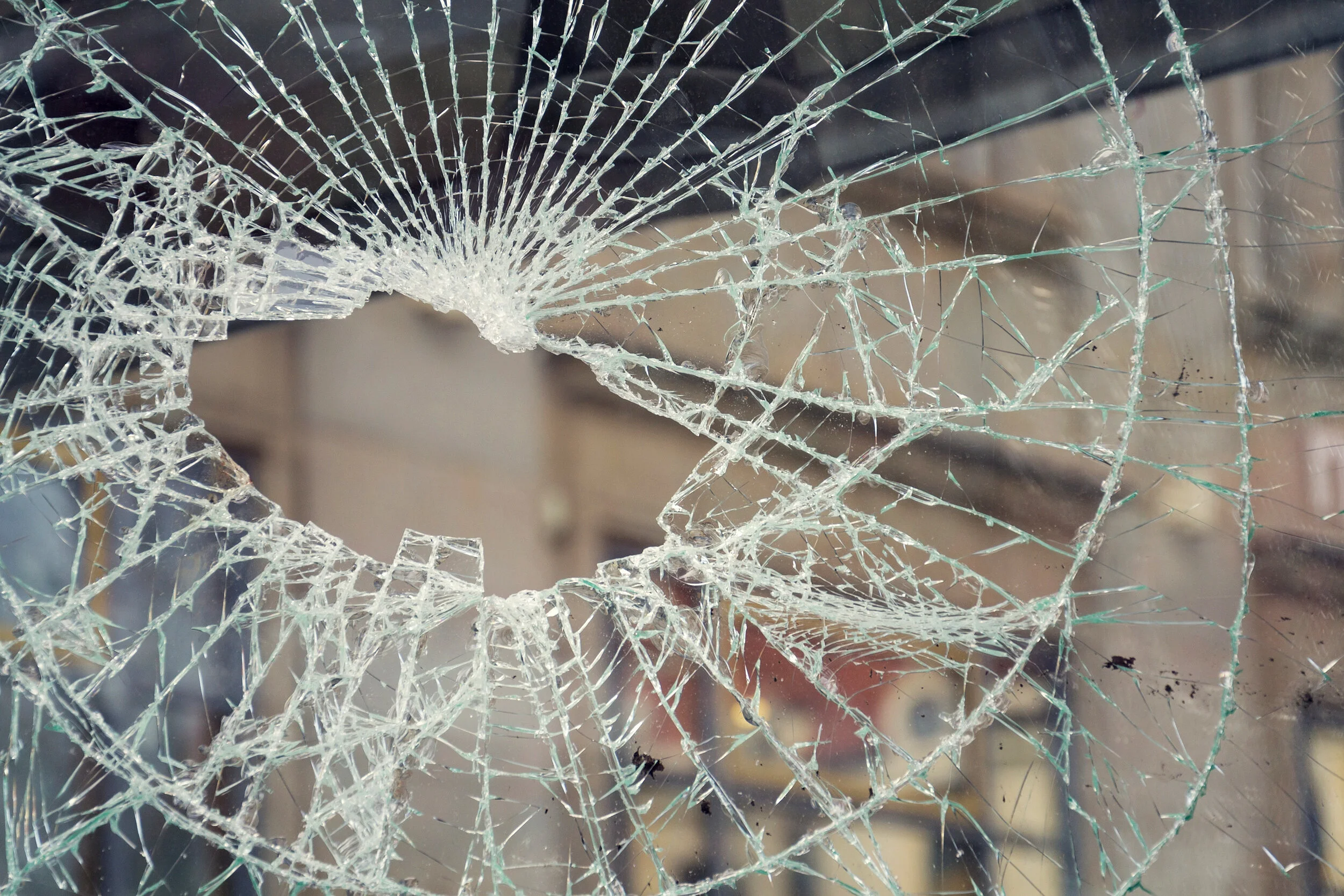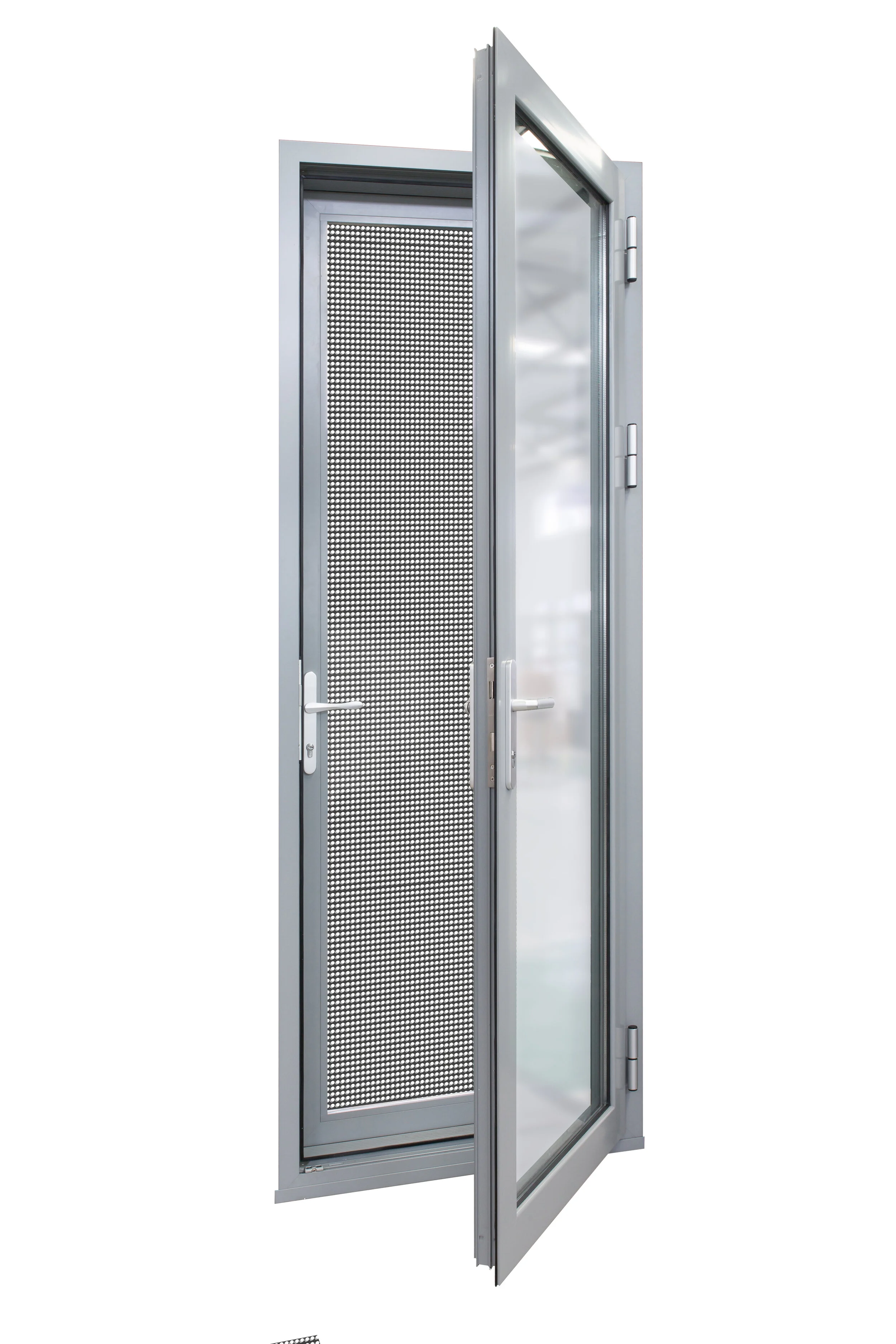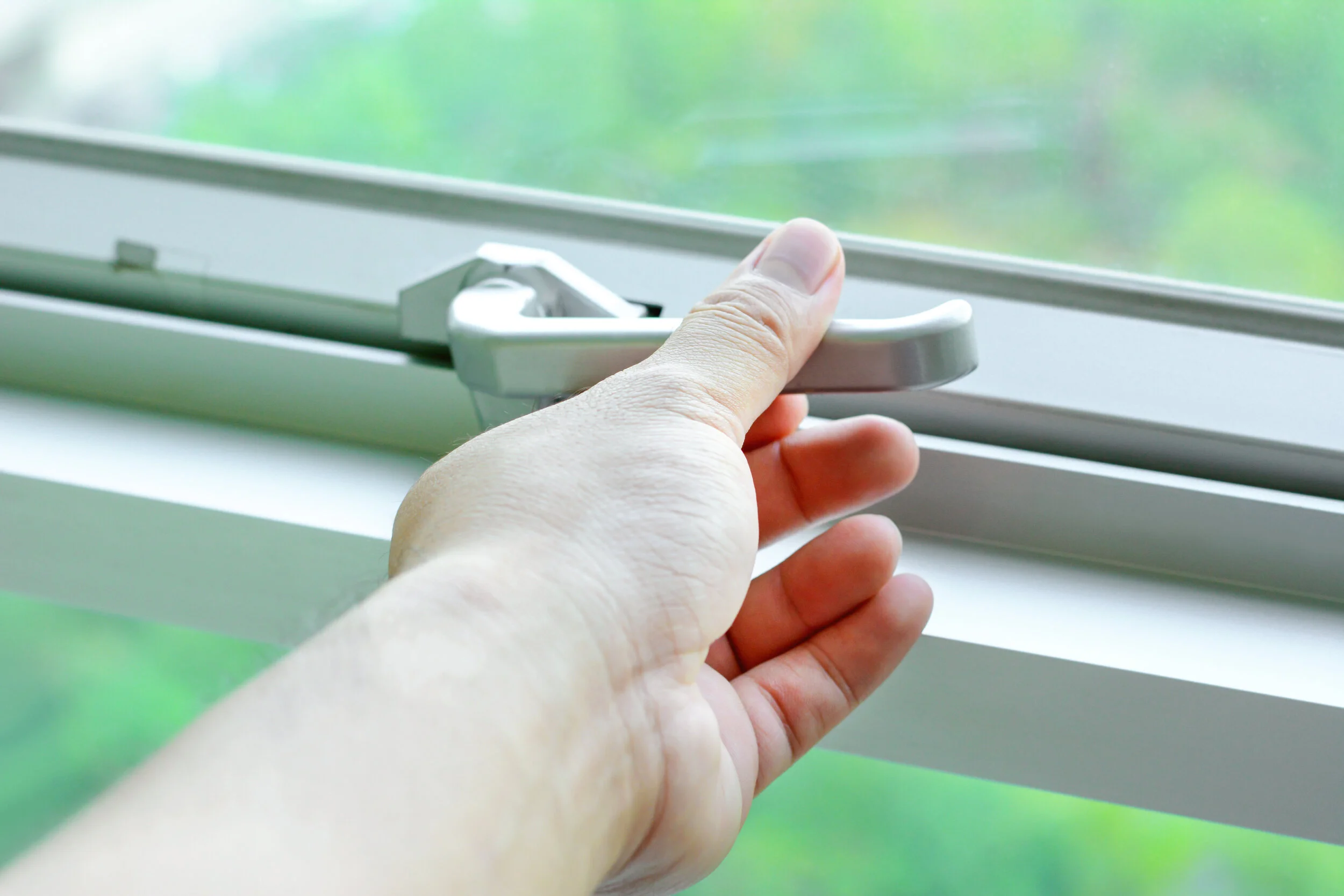Door and Window Security Screens: Stay Safe, Save Money
When you think about adding security to your home, you might consider alarm systems. You think about the locks on your windows and doors.
But do you consider the security screens that you’re using on the windows?
Window Security Screens
Security screens are different than regular bug screens. They provide unobscured views and ventilation, but they’re more durable and tamper-resistant than a regular window screen.
You don’t have to put steel bars on the windows to enhance their security. Window security screens are much more aesthetically pleasing and more functional.
You can install these types of screens on your windows, but you can also put them on your doors for enhanced safety. Certain security screens are are so strong, in fact that they are used in residential properties, offices, prisons and government buildings.
One of the main differences between a window security screen and insect screen is the material.
Insect window screens are typically made from aluminum or PVC-coated polyester. These materials are strong enough to withstand small insects. But you can cut through them easily with a sharp object.
Security screens are generally made from stainless steel mesh. They have durable frames and tamper-resistant fasteners. Security screens are difficult to penetrate or remove from their frames.
Security Window Screens: Blue Metal Mesh
Stainless Steel Mesh
Security screens are usually:
Made from 304 or 316-gauge stainless steel mesh wire - sometimes, this type of screen is referred to as “bulletproof.”
Appear transparent from the inside and doesn’t block your view
Blur the view to the inside of your house from the exterior
Keep insects out; ideal for buggy environments
Resist corrosion, making it perfect for humid climates
Difficult to penetrate with a knife or sharp object
Prevent forced entry
Many brands of security screens are tested to confirm compliance with certain standards. The following types of tests are often conducted to ensure the strength and quality of security screens:
• Knife shear tests
• Impact tests
• Pull tests
• Fire tests
Security Window Screens For The House
If you’re worried that a stainless steel security screen will be shiny and obvious, you should know that these types of screens are made to look like standard window screens. Many are powder-coated with a black finish that matches the appearance of PVC screens.
Shattered Window
Hurricane Protection
During a hurricane, high winds can lift objects off of the ground and slam them into windows like projectiles. Window damage from a storm doesn’t just result in broken glass. It can cause water to enter the house and create moisture problems. Broken windows also leave your home susceptible to theft.
Security screens can protect the window glass from breaking if it’s struck during a storm. Look for woven mesh that’s made with size-304 structural-grade stainless steel. The strength of the mesh protects the glass behind it.
The way that the mesh is attached to the frame also impacts the screen’s security. A strong clamp system will hold the mesh in a vice-like grip. It won’t loosen when pressure is applied. It should scatter the force of impacts without releasing its hold on the frame.
Screens may also be preferable to hurricane shutters for storm protection for a number of reasons. They don’t obstruct your view and allow light in during the storm. They won’t trap you in your home if the power goes out.
Screens are easy to install. Once you’ve put them in your windows, you don’t have to worry about protecting your home when hurricane season comes around.
If you’re looking for a low-maintenance, affordable option for hurricane and storm protection, you might want to consider security screens. They have a long lifespan and should give you peace of mind for years.
Door With Security Screen
UV Protection
You might wear sunscreen to protect your skin from UV rays when you’re outdoors, but is your home protected from the sun? UV rays that enter through the windows can fade furniture, carpets, paint, flooring and artwork. You want natural light to enter your home. But you don’t want it to damage your belongings.
Although the UV rays that come through a glass window won’t give you sunburn, they do contribute to premature aging. Therefore, adding UV protection to your windows is a plus.
Security window screens provide added UV protection to your windows. You won’t have to close the blinds or curtains and block the light, but you’ll still be safeguarded against the sun’s damaging rays.
Fire Protection
Because security screens are made of stainless steel, they won’t melt in a fire. The small holes in the screen act as a shield, slowing the spread of ashes and embers. Security screens are especially useful in buildings that are close to others. They protect the openings of your building in case of a fire.
Fire safety can be tricky. You want your screens to protect your property, but you don’t want them to trap you inside if you need to escape through a window. Some security screens offer quick-release features to allow you to exit in an emergency. If you opt for quick-release window screen latches, make sure that they’re childproof and can’t be accidentally opened.
Child & Pet Proof
Approximately 5,000 children are injured every year after falling out of windows. Most of these accidents involve first and second-story windows. It’s important to secure the openings in your house if you have children. The three-foot drop from your bedroom window could injure a toddler.
Children younger than age 5 are at the greatest risk. They’re mobile and curious. A child might sit on a windowsill without realizing that the screen isn’t strong enough to hold their weight.
Security screens can help prevent these types of accidents. Regular window screens provide a false sense of security. Security screens and child safety screens may be able to withstand the pressure of a child pushing against them. If this is a concern for you, check with the manufacturer before you purchase the product.
Any screen that protects children can also keep pets out of harm’s way. A medium-sized dog could easily jump through a fiberglass screen if frightened. Cats can claw holes in ordinary window screens. A security window screen should be able to withstand wear and tear from the animals in your home.
These types of screens also keep aggressive wildlife outside. They’re resistant to tears from birds, rodents and raccoons.
Bullet Proof Window Screens Prevent Theft
Theft Protection
Security screens make it difficult for intruders to enter your home. They’re resistant to penetration from knives. They can usually be cut with power tools, which makes your house accessible in case of a fire. However, security screens usually present enough of an obstacle to burglars that they serve as an excellent deterrent.
If a burglar is scoping out the houses in your neighborhood and notices that you have security screens, they may be less likely to target your property. Intruders look for weak areas in the house, and the screens may let them know that they’re not likely to get in our out of your home easily.
You can combine security screens with sensors that alert you to intruders. A sensor that detects motion or broken glass can give you added security and peace of mind.
What You Should Consider When Buying Security Screens
If you’re interested in security window screens, you might want to check with your homeowner’s association, or HOA. Because security screens are slightly more visible than ordinary screens, they can affect the appearance of your home. Some HOAs must approve these types of screens.
Security screens are permanently mounted. You might be able to take on this project yourself. However, it’s a good idea to hire a professional, especially if you have oddly sized windows. A professional can also create custom window screens if your openings aren’t standard or square.
Measure your windows carefully. Contact a few companies for quotes. Ask questions so that you can become familiar with the process and make sure that you’re purchasing the right product for your needs.
Window Screen Locks and Latches
There are different types of window screen locks and latches. Look for a method that works for your type of windows. For example, if you have hinged windows, you might want the screen to hinge too.
If you need to use a window as an emergency exit, ensure that you can release the screen quickly from the inside. But for theft protection, you should check that the window screen latches can’t be tampered with from the outside.
Other Types of Window Screens
• Insect screens – Usually aluminum or fiberglass, these give you an unobstructed view and encourage airflow while keeping insects outside. Fiberglass screens don’t dent or crease. Aluminum screens require a protective finish to prevent corrosion.
• Patio and porch screens – These are usually made of a heavy-duty fiberglass that’s tougher than what you would use on regular window screens.
• No-see-um insect screens – These screens have a finer mesh than most to keep out smaller insects.
• Copper/bronze screen – This type of screen provides strength and protection with vintage aesthetics.
• Retractable screens – Can be rolled up and hidden when they’re not being used.
• Solar screens – Reflect light and heat from the sun away from your home.
• Custom window screens – These fit windows with odd shapes or sizes.


